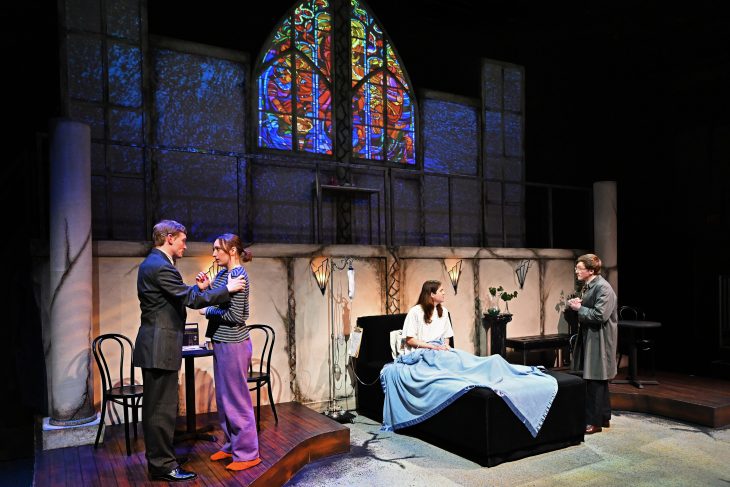
Transylvania students will be able to parlay their love of theater into multiple majors beginning this fall. In addition to the traditional theater major, the department recently designed multiple tracks to cater to a wide range of interests within the discipline, from performance to technology. The university will also offer a theater arts minor, allowing students to choose between broad exposure to all aspects of theater or the ability to focus on one of the specific tracks.
Tosha Fowler, director of the theater program and the Lucille C. Little Endowed Chair in Theater, was inspired to create the new majors after noticing the varied career paths Transylvania theater majors embarked upon after graduation. “I wanted to be intentional about creating a theater program for all,” she said, adding that she wanted the majors to allow students to “become that fully realized, best version of themselves.”
The three options include theater arts, theater design and technology, and theater performance. All of the tracks share several courses, including Technical Theater, Directing Fundamentals and Theatre: A Global Perspective, as well as practicum work. The differentiating courses help students hone the skills they need to be strong candidates in today’s job market, whether they are seeking a job on stage or behind the scenes.
Theater arts — the “traditional” track — is flexibly designed to be easily completed as a second major.
“We have so many students who participate in the theater program, and a lot of them express the desire to double-major,” Fowler said. “What makes the theater arts degree great is that it removes a lot of the barriers that were there before.”
The remaining tracks appeal to students who have a specific career goal in mind. Theater design and technology is ideal for students seeking exposure to production elements, including set design, lighting, projection, props, sound, costuming, hair and makeup, and special effects, while theater performance focuses on acting, directing, playwriting and dramaturgy.
Both theater design and technology and theater performance were modeled after the Bachelor of Fine Arts degree common in a conservatory setting. “While we want students to get a broad range of education and skill sets, we also want them to have some sort of specialty so they feel confident when they step into their chosen career path,” Fowler said, adding, “It’s the same type of diverse, yet specific professional training that you would get in a BFA.”
Theater majors develop their transferable skills through discrete projects, from staging a production to writing a script. The project-based courses can then be translated into a resume, giving students an advantage in the job market. Students with a major or minor in theater “know how to communicate, they are creative, they are collaborative,” Fowler said. “All of our students who have wanted to work in the industry are working in the industry.”
Within all three majors, there is also flexibility to focus on other employable aspects of the field, such as drama therapy, theater education, and technology and design in the greater media and entertainment industry. The tracks are also deliberately designed to allow students to explore their interests for the first two years of their degree before settling on a final pathway.
While the new majors offer a bounty of opportunities for students who know they want a career in the arts, Fowler is committed to ensuring that the department as a whole is a welcoming environment aligned with the university’s liberal arts mission.
“I was really intentional about seeing how the theater program could serve every single student at this school,” she said, noting that the soft skills developed in performance-based classes are easily transferable to a wealth of professional environments. “If you’re taking any kind of performance-based class at all, you’re going to learn how to perform on Zoom, because all of your first interviews are going to be on there,” she said. “Everyone needs storytelling skills.”
The program also aims to be a hub of excellence in central Kentucky. Fowler cited the recent staging of “Angels in America: Millennium Approaches” as an example of her overarching mission, noting that she is committed to “finding the unique stories that Transy can tell well in collaboration with our students to make Transy a cultural hub for the region.”

